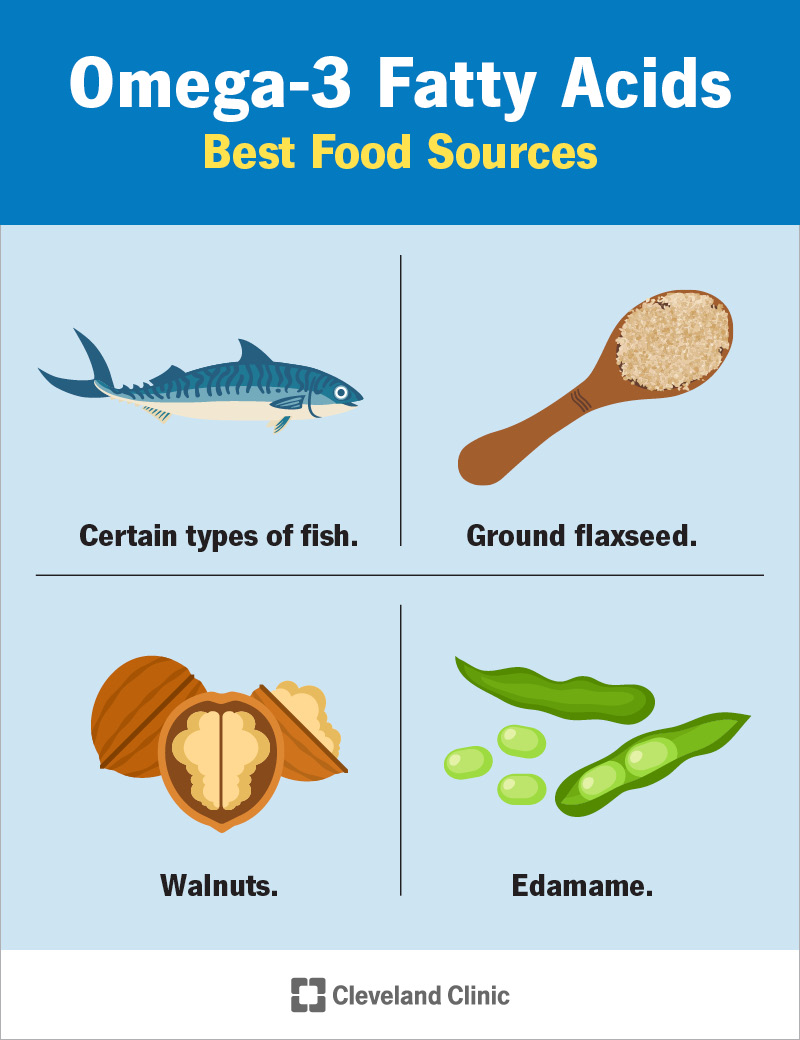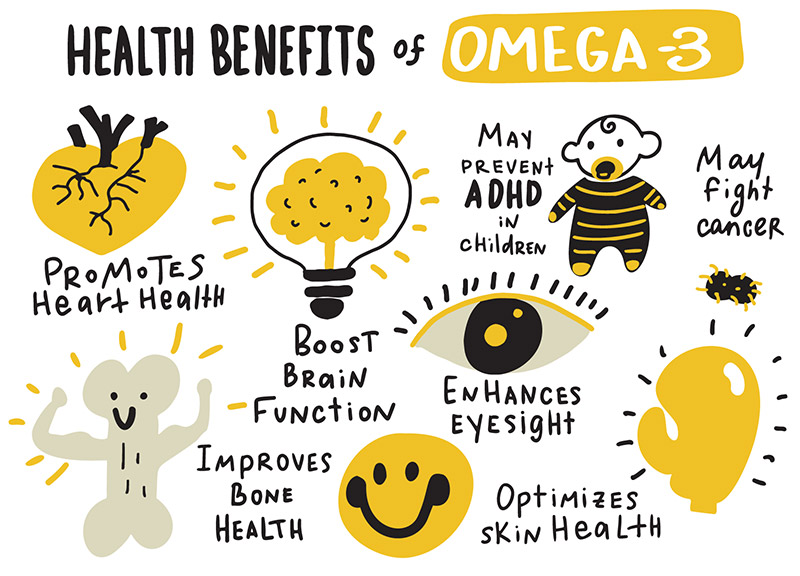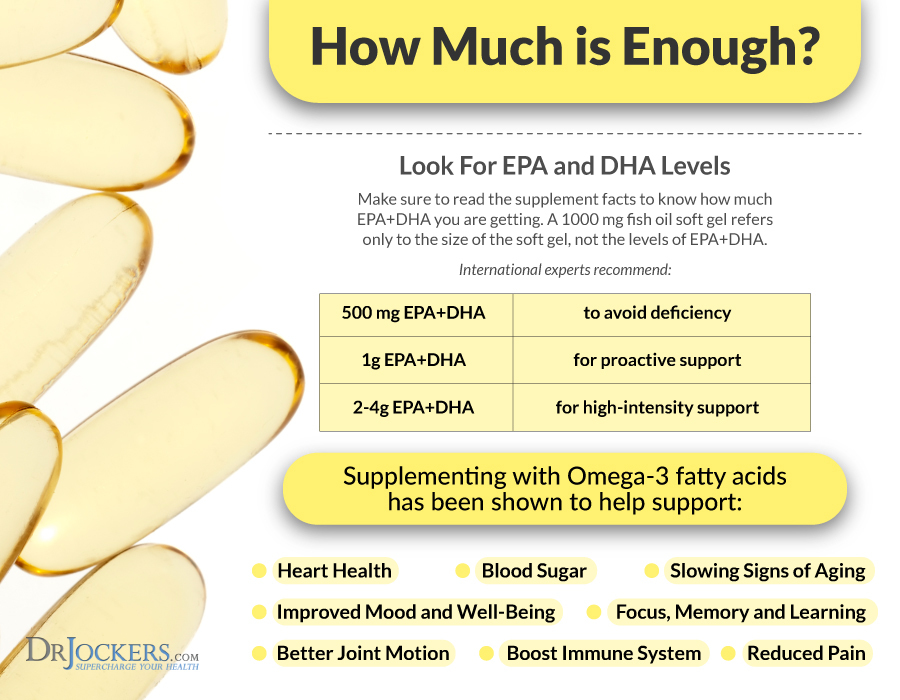Welcome to our blog on the role of Omega-3 fatty acids in heart health. In this article, we will explore the importance of omega-3 fatty acids for maintaining a healthy heart and provide insights into their benefits. Omega-3 fatty acids are essential fats that play a crucial role in various bodily functions, including heart health. By incorporating these fats into your diet, you can improve cardiovascular well-being and reduce the risk of heart disease. So, let’s dive into the world of omega-3 fatty acids and discover how they can support your heart health!
Importance of Omega-3 Fatty Acids for Heart Health

Omega-3 fatty acids are of utmost importance when it comes to heart health. These essential fats have been proven to have numerous benefits for cardiovascular well-being. They help reduce inflammation, lower blood pressure, decrease triglyceride levels, and improve overall heart function. Incorporating omega-3 fatty acids into your diet can significantly reduce the risk of heart disease and improve key markers of heart health. By including sources such as fatty fish, flaxseeds, chia seeds, and walnuts in your meals, you can ensure a steady intake of these vital nutrients for a healthier heart.
What are Omega-3 Fatty Acids?

Omega-3 fatty acids are a type of polyunsaturated fat that are essential for our overall health, particularly for the health of our heart. These fatty acids are not produced by our bodies, so we must obtain them from the foods we eat. Omega-3 fatty acids play a crucial role in reducing inflammation, improving blood vessel function, and promoting healthy heart rhythm. They are also known to lower blood pressure and reduce the risk of developing cardiovascular diseases. Including sources of omega-3 fatty acids in your diet is vital for maintaining optimal heart health.
Benefits of Omega-3 Fatty Acids for the Heart

Omega-3 fatty acids offer numerous benefits for heart health. They help to improve blood vessel function, reduce inflammation, and promote healthy heart rhythm. These fatty acids can also lower blood pressure and decrease the risk of developing cardiovascular diseases. Research has shown that regular consumption of omega-3 fatty acids can reduce the risk of heart attacks, stroke, and arrhythmias. Incorporating sources of omega-3 fatty acids into your diet can help support a healthy heart and protect against cardiovascular conditions.
Sources of Omega-3 Fatty Acids

To incorporate omega-3 fatty acids into your diet, you can turn to various food sources. Some of the best sources of omega-3 fatty acids include fatty fish like salmon, mackerel, and sardines. These fish are rich in eicosapentaenoic acid (EPA) and docosahexaenoic acid (DHA), which are the two main types of omega-3 fatty acids. Other sources include flaxseeds, chia seeds, walnuts, and soybeans. Adding these foods to your meals can help you meet your daily omega-3 fatty acid requirements and support a healthy heart.
Fish as a Rich Source of Omega-3 Fatty Acids

If you’re looking to boost your omega-3 fatty acid intake, look no further than fish. Fatty fish like salmon, mackerel, and sardines are among the richest sources of omega-3s. These fish are packed with eicosapentaenoic acid (EPA) and docosahexaenoic acid (DHA), the two main types of omega-3 fatty acids that have been shown to support heart health. Including these fish in your diet regularly can help you meet your omega-3 needs and promote a healthy heart. So, don’t hesitate to add a delicious salmon fillet or some grilled sardines to your meals.
Plant-Based Sources of Omega-3 Fatty Acids

Incorporating plant-based sources of omega-3 fatty acids into your diet can be a great option for those who follow a vegetarian or vegan lifestyle. Some of the best plant-based sources include flaxseeds, chia seeds, hemp seeds, and walnuts. These foods are rich in alpha-linolenic acid (ALA), another type of omega-3 fatty acid. While ALA needs to be converted to EPA and DHA in the body, it can still provide some heart health benefits. Including these plant-based sources in your meals can help boost your omega-3 intake and support a healthy heart.
Omega-3 Fatty Acids and Cardiovascular Health

Omega-3 fatty acids play a crucial role in promoting cardiovascular health. Research has shown that these fatty acids can help reduce the risk of heart disease by lowering blood pressure, decreasing triglyceride levels, and reducing inflammation. Regular consumption of omega-3 fatty acids has also been associated with a lower risk of developing abnormal heart rhythms. Incorporating foods rich in omega-3s, such as fatty fish or plant-based sources like flaxseeds, can help support a healthy heart and maintain optimal cardiovascular function. Consider adding these beneficial fatty acids to your diet for a healthier heart.
Role of Omega-3 Fatty Acids in Reducing Risk of Heart Disease

Incorporating omega-3 fatty acids into your diet can significantly reduce the risk of heart disease. The anti-inflammatory properties of these fatty acids help to reduce inflammation in the body, including in the blood vessels, which can help prevent the development of heart disease. Omega-3s can also improve heart health by lowering blood pressure and reducing levels of triglycerides, a type of fat that can contribute to heart disease. By including omega-3-rich foods or supplements in your diet, you can take important steps towards protecting your heart health.
Effects of Omega-3 Fatty Acids on Cholesterol Levels

Omega-3 fatty acids have been found to have a positive impact on cholesterol levels. They can help to increase HDL (good) cholesterol levels, while decreasing LDL (bad) cholesterol levels. This is important for heart health, as high levels of LDL cholesterol can contribute to the development of plaque in the arteries, increasing the risk of heart disease. By incorporating omega-3-rich foods or supplements into your diet, you can help to maintain a healthy balance of cholesterol and protect your heart health.
Omega-3 Supplements for Heart Health

Omega-3 supplements are a convenient way to ensure you are getting an adequate amount of omega-3 fatty acids for heart health. These supplements come in different forms, including fish oil capsules, krill oil, and algae-based sources for vegetarians and vegans. When choosing an omega-3 supplement, look for a product that contains a high concentration of EPA and DHA – the two most important types of omega-3 fatty acids for heart health. It is also important to consult with your healthcare provider before starting any new supplement regimen.
Types of Omega-3 Supplements

When it comes to omega-3 supplements, there are various options available. The most common types include fish oil capsules, krill oil, and algae-based sources for vegetarians and vegans. Fish oil capsules are derived from fatty fish like salmon or mackerel and contain high levels of EPA and DHA. Krill oil is obtained from tiny shrimp-like creatures and also contains EPA and DHA. Algae-based supplements are a great choice for individuals following a plant-based diet as they provide a direct source of omega-3 fatty acids. It’s important to choose a supplement that best suits your dietary needs and consult with your healthcare provider for personalized advice.
Considerations when Choosing Omega-3 Supplements

When choosing omega-3 supplements for heart health, there are several factors to consider. First, look for a reputable brand that uses high-quality ingredients and undergoes third-party testing for purity and potency. Check the label for the amount of EPA and DHA per serving, as these are the most beneficial omega-3 fatty acids for the heart. Consider your dietary preferences and restrictions, such as fish oil capsules for non-vegetarians or algae-based supplements for vegetarians and vegans. Lastly, consult with your healthcare provider to determine the appropriate dosage and form of omega-3 supplement for your specific needs.
Incorporating Omega-3 Fatty Acids into Your Diet

Incorporating omega-3 fatty acids into your diet is easy and delicious. To meet the recommended daily intake, include fatty fish like salmon, sardines, and mackerel in your meals at least twice a week. You can also add flaxseeds, chia seeds, and walnuts to your breakfast or snacks. Another option is to use omega-3 enriched eggs or fortified products. Try recipes like grilled salmon with a side of steamed vegetables or a flaxseed and berry smoothie. By incorporating these foods into your diet, you can enjoy the health benefits of omega-3 fatty acids for your heart.
Recommended Daily Intake of Omega-3 Fatty Acids

To reap the heart-healthy benefits of omega-3 fatty acids, it is recommended that you consume a certain amount each day. The American Heart Association suggests eating at least two servings of fatty fish per week, such as salmon or sardines, which provides about 1.5 grams of omega-3 fatty acids. If you prefer plant-based sources, aim for around 1.6 grams of alpha-linolenic acid (ALA) daily. This can be achieved by incorporating options like flaxseeds, chia seeds, or walnuts into your meals. Remember to consult with your healthcare provider to determine the specific amount that is right for you.
Delicious Recipes Rich in Omega-3 Fatty Acids

Here are some delicious recipes that are not only rich in omega-3 fatty acids but also heart-healthy. Try these flavorful options to boost your intake of these essential fats:
- Baked Salmon: Simply season a fresh salmon filet with salt, pepper, and your favorite herbs. Bake it in the oven until it flakes easily with a fork. Serve with steamed vegetables for a nutritious and satisfying meal.
- Chia Seed Pudding: Mix chia seeds with your choice of milk (such as almond or coconut milk) and a sweetener of your choice. Let it sit overnight, and in the morning, you’ll have a creamy and omega-3-packed pudding. Add some fresh berries for extra flavor and antioxidants.
- Walnut and Spinach Salad: Toss together fresh spinach leaves, chopped walnuts, sliced strawberries, and crumbled feta cheese. Drizzle with a vinaigrette made with olive oil, balsamic vinegar, and a touch of honey. This salad is not only delicious but also packed with heart-healthy ingredients.
Remember to get creative in the kitchen and experiment with different recipes and ingredients to incorporate more omega-3 fatty acids into your meals.
Conclusion of fatty acids in heart health

Incorporating omega-3 fatty acids into your diet is a smart choice for promoting heart health. These essential fats have been shown to reduce the risk of heart disease and improve cholesterol levels. By including foods like fatty fish, chia seeds, and walnuts in your meals, you can easily boost your omega-3 intake. Additionally, omega-3 supplements can be a convenient option for those who may not consume enough through their diet alone. Remember, taking care of your heart by incorporating omega-3 fatty acids is a simple and delicious way to support your overall health.
Summary of Omega-3 Fatty Acids and Heart Health

Incorporating omega-3 fatty acids into your diet is a smart choice for promoting heart health. These essential fats have been shown to reduce the risk of heart disease and improve cholesterol levels. By including foods like fatty fish, chia seeds, and walnuts in your meals, you can easily boost your omega-3 intake. Additionally, omega-3 supplements can be a convenient option for those who may not consume enough through their diet alone. Remember, taking care of your heart by incorporating omega-3 fatty acids is a simple and delicious way to support your overall health.
Future Research and Recommendations

Future research on omega-3 fatty acids and heart health should focus on understanding the optimal dosage and duration of supplementation. Additionally, more studies are needed to explore the potential benefits of omega-3 fatty acids on specific populations, such as those with diabetes or hypertension. It is also important to investigate the effectiveness of different sources of omega-3 fatty acids, including supplements and plant-based options. Recommendations for individuals include consulting with a healthcare professional to determine the appropriate omega-3 supplement dosage and incorporating a variety of omega-3-rich foods into their diet for optimal heart health.
For More Blogs visit Aerns

